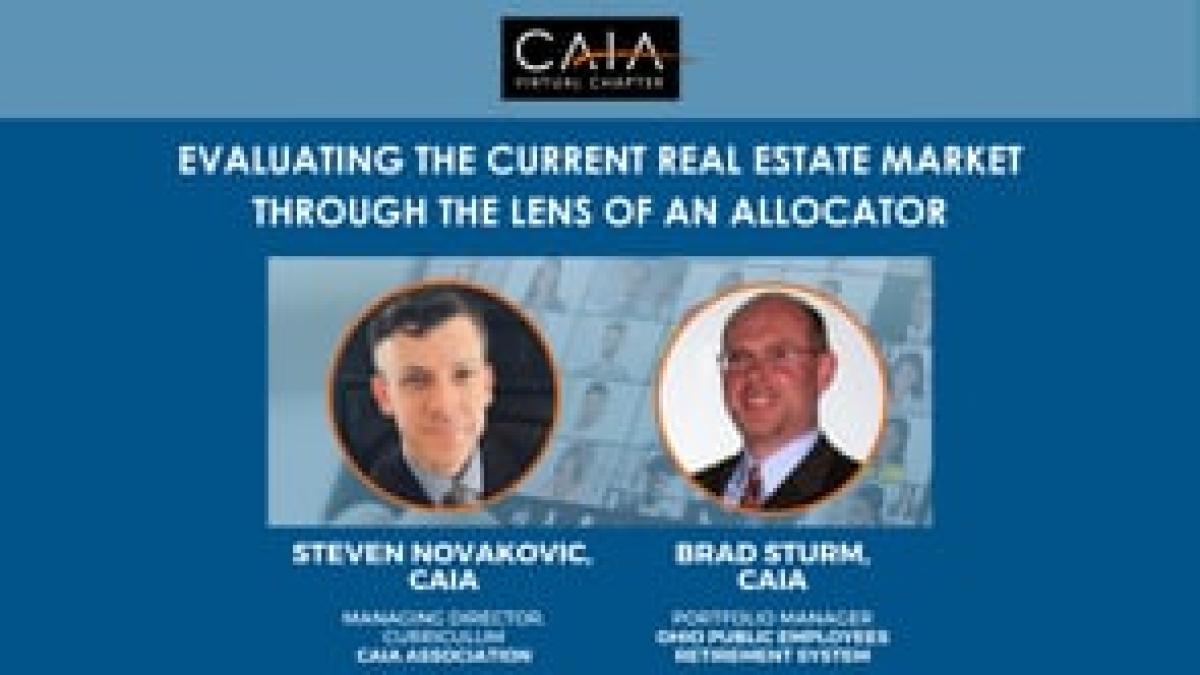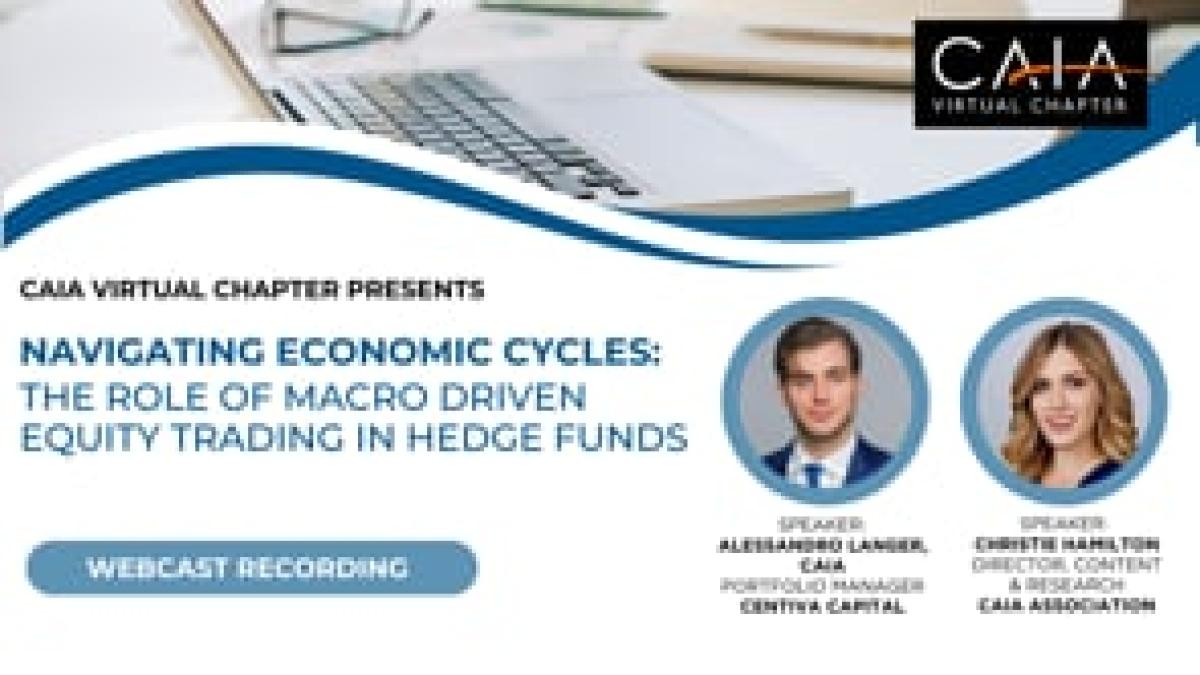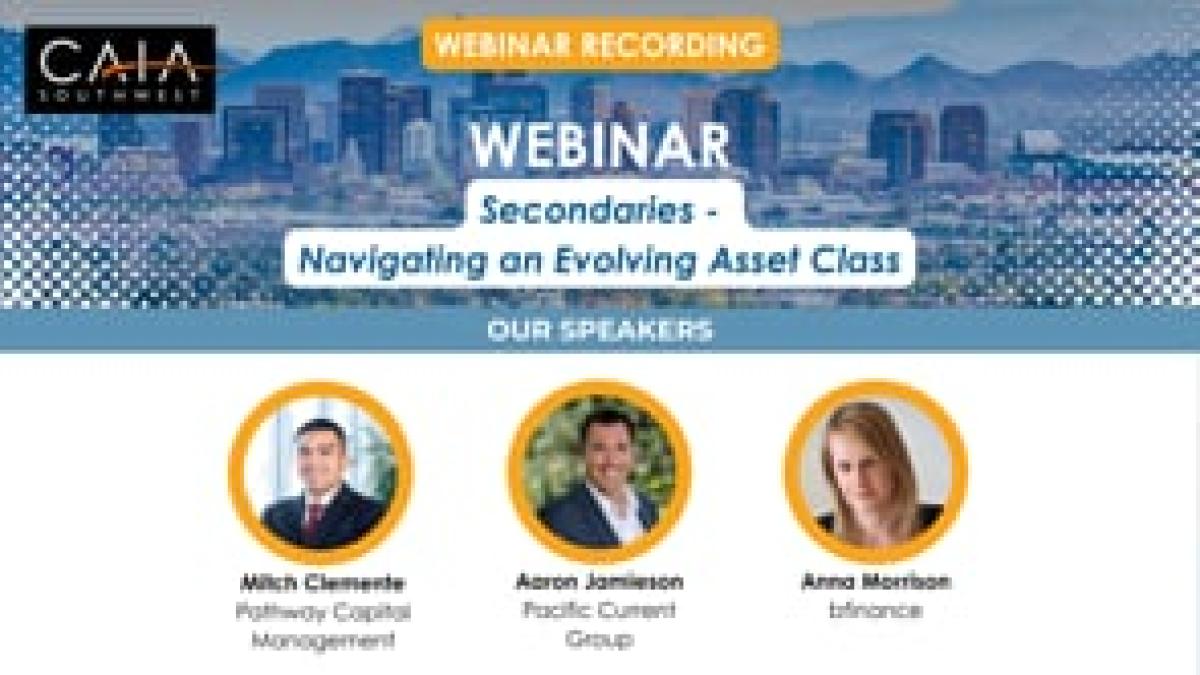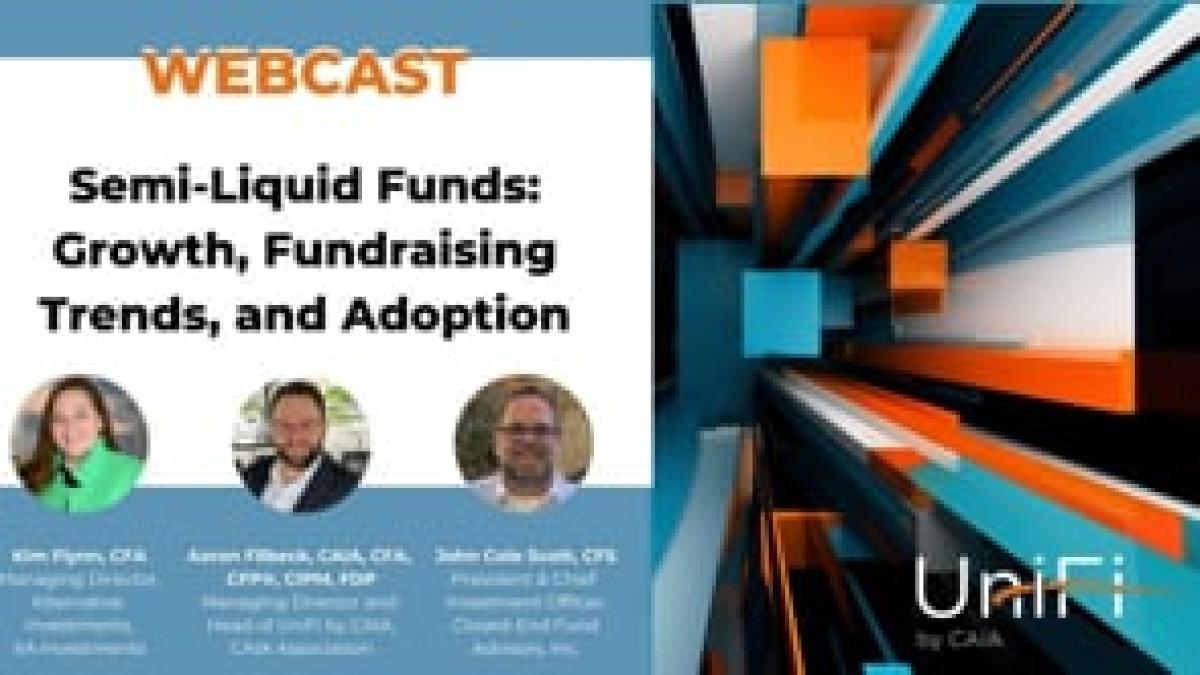Multimedia Library
Watch this engaging discussion with a CAIA curriculum contributor and former Portfolio Manager at Ohio Public Employees Retirement System. Together, we discussed the Real Estate market and how allocators may consider managing a portfolio in the current market environment. In addition to discussing investment opportunities, both co-investment and fund investment, we dived into portfolio management and portfolio construction to design a resilient portfolio for uncertain environments.
In this conversation, Christie and Alessandro dove into the intricate interplay between monetary policy, economic indicators, and long/short equity hedge fund performance.
The CAIA Virtual Chapter and UniFi by CAIA hosted a webcast on the current state of the cryptocurrency and digital assets market.
With the recent approval of the US Securities and Exchange Commission of a spot Bitcoin and rise in bitcoin and other cryptocurrencies prices, there has been a renewed interest in the digital assets marketplace. As such, this increased attention presents a good time to check-in on the current landscape.
Among other topics, the panelists discussed the drivers of the latest market moves, the role digital assets play in institutional and private wealth portfolios, and evaluated the outlook for cryptocurrencies.
CAIA Southwest hosted a webcast delving into the pivotal role that secondaries play in private market portfolios. They provided valuable insights into the trajectory of this asset class, explored the burgeoning growth and complexity of opportunities within the marketplace, and uncovered what lies ahead in the coming year.
As the landscape of investments undergoes a remarkable shift with 'alternatives' taking center stage, the CAIA Association is taking a leadership role in the development of a modernized and relevant set of fiduciary practices for investment professionals and capital allocators to embrace. With the launch of our Open Comment Period on March 5, we invited all stakeholders to join us on this transformative journey, recognizing the need for principles that not only align with the industry's current trajectory but also lay the groundwork for a sustainable and responsible future for alternative investments.
In partnership with Bella Partners, CAIA Boston, CAIA Carolinas, and CAIA Bay Area joined together for this webcast on Innovative modeling and predictive analytics tools for private markets. In this talk, Alex Billias, CFA and Sam Holt, CFA discussed their simulation-based approach, recently published in the Journal of Portfolio Management, for liquidity and performance modeling in private markets. It highlighted how simulations offer significant improvements over decades-old approaches built on spreadsheets, solve longstanding issues that have made forecasting difficult in the past, and open up exciting new avenues for future innovations.
The proliferation of semi-liquid fund structures has grown substantially over the past decade, as GPs have sought new ways to offer private markets to the wealth management channel.
Adoption has simultaneously increased from investors seeking exposure to private markets while maintaining operational and tax efficiency.
Where is the interest? Where are funds being raised and in which asset classes? Is there more innovation on the horizon?
This discussion sought to answer these questions, focusing on the data and trends found in popular fund vehicles such as interval funds, tender offer funds, business development companies, and non-traded REITs.
This webinar featured members of the FDP Curriculum, Candidate & Member Relations and Operations Teams. The following topics were discussed: Curriculum materials, Learning Objectives and Practice Question review. We went over the exam structure and format, and available resources. Preparation for exam day and items permitted during the exam were covered.
The recent advancement of deep learning and large language models has had a profound influence on many fields, including finance. Speakers Nino Antulov-Fantulin and Petter Kolm provided an overview of recent ML advancements like large language models, transformers, physics-informed neural networks, graph neural networks, and their impact on decision-making, data-driven analysis, and time series forecasting in finance.
The presentation paid special attention to large language models for finance. LLMs like GPT-3 are trained through a two-step process: pre-training and fine-tuning. In this pre-training, the model is exposed to a massive dataset of texts and is trained to the next word in a sentence or filling in gaps in sentences. In essence, the model learns to understand the grammar, context, and various language patterns. After pre-training, the model is fine-tuned on specific tasks or datasets to specialize its capabilities.
In this fast-paced, ever-evolving tech landscape, AI is not just an option; it's a necessity. As a startup, understanding AI can become your game-changing strategy. This insightful webinar is specially designed to address the pressing questions startups often have about AI:
• What exactly is AI?
• How can it be leveraged within a budding business?
• What are its potential pitfalls, and how can they be avoided?
Dr. Kathryn Wilkens moderated as Dr. Stylianos Kampakis delved deep into these topics, drawing on vast experience and industry foresight. They provided actionable advice on integrating AI into your operations, sharing valuable case studies and success stories.












